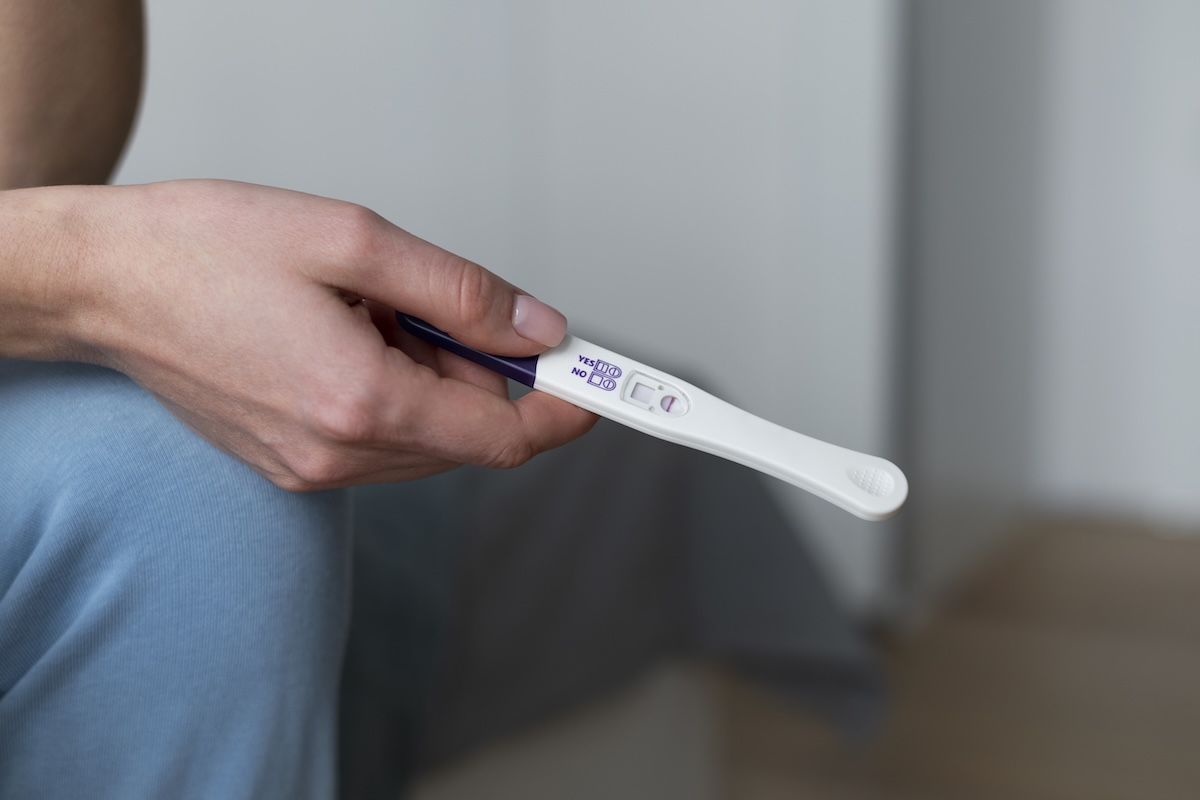If you think you might be pregnant, it’s natural to look for early signs. Even before a missed period, your body can start showing small changes. These early pregnancy symptoms happen because your hormone levels begin to shift very soon after conception. While some women notice these changes quickly, others may not feel different at all during the first few weeks.

Everyone’s body is unique, so no two pregnancies feel exactly the same. Some women have strong early symptoms, while others barely notice anything. That said, there are a few common signs that often show up early on and may give you a clue that you’re expecting.
In this article, we’ll go over seven of the most common early pregnancy symptoms, why they happen, and when you should consider taking a pregnancy test or speaking to a doctor.
1. Missed Period
One of the most well-known signs of pregnancy is a missed period. If your cycle is regular and your period doesn’t come on time, it could be a sign that your body is getting ready to support a growing baby. When you become pregnant, your body produces a hormone called human chorionic gonadotropin (hCG), which helps stop your menstrual cycle.
But a missed period alone isn’t always proof of pregnancy. Stress, illness, or a change in routine can also delay your period. That’s why it’s helpful to look for other signs alongside it. Still, if your period is late and you’ve had unprotected sex, taking a home pregnancy test is a good next step.
2. Tender or Swollen Breasts
Hormonal changes during early pregnancy can make your breasts feel different. They may feel more sensitive, tender, or even a bit sore. Some women also notice that their breasts feel heavier or that the area around the nipple (the areola) darkens.
These changes are similar to how your breasts may feel before your period, but they can be more noticeable and last longer during pregnancy. The body is getting ready for possible breastfeeding, and this process starts earlier than you might think.
The discomfort often fades as your body adjusts to the new hormone levels, usually after the first few weeks.
3. Nausea or Morning Sickness
Nausea is one of the most recognized signs of early pregnancy. It’s often called “morning sickness,” but it can happen at any time of day or night. Some women only feel a bit queasy, while others may vomit frequently.
This symptom is linked to rising hormone levels, especially hCG and estrogen. It can start as early as two weeks after conception, but it’s most common around the sixth week of pregnancy.
Not all pregnant women experience nausea, and some may never feel sick at all. If you do, eating small meals, staying hydrated, and avoiding strong smells may help ease the feeling.
4. Fatigue
Feeling more tired than usual is another early sign of pregnancy. This sudden fatigue is often caused by an increase in progesterone, a hormone that helps your body support the baby in the early stages.
Your body is also working hard to produce more blood to carry oxygen and nutrients to the developing embryo. This extra effort can leave you feeling drained, even if you’re getting enough sleep.
Many women find that fatigue improves in the second trimester, but it may return later in pregnancy as the body continues to change.
5. Frequent Urination
Needing to pee more often than usual can start early in pregnancy. This happens because the growing uterus puts pressure on the bladder. At the same time, your body increases the amount of blood it pumps, which leads to more fluid being processed through your kidneys.
This symptom may begin around six to eight weeks into pregnancy, but some women notice it even earlier. It may continue throughout your pregnancy as the uterus expands and the baby grows.
Even though frequent urination is common, it shouldn’t be painful. If you experience burning or discomfort when you urinate, it could be a sign of a urinary tract infection and should be checked by a doctor.
6. Mood Swings
Sudden emotional changes are common during early pregnancy. You might feel happy one moment and tearful the next. These mood swings are caused by rapid changes in hormone levels, particularly estrogen and progesterone.
These hormones can affect brain chemicals that control mood. Plus, adjusting to the idea of being pregnant can bring excitement, worry, and everything in between.
While mood changes are normal, severe or ongoing emotional difficulties should be discussed with a healthcare provider, especially if they affect your ability to enjoy daily life or get rest.
7. Mild Cramping or Spotting
Some women notice light cramping or spotting around the time their period would normally start. This can be confusing, but in early pregnancy, it’s usually a sign of implantation—when the fertilized egg attaches to the lining of the uterus.
The cramps may feel similar to period cramps but are usually milder. The spotting is light and often pink or brown rather than red. It typically lasts just a day or two.
If you experience heavy bleeding or strong pain, it’s important to see a doctor. While light spotting can be normal, heavier bleeding might signal a problem that needs medical attention.
When to Take a Pregnancy Test
Most home pregnancy tests work best when taken after your missed period, but some can detect pregnancy a few days earlier. If you’re experiencing more than one of these early signs, and especially if your period is late, it’s a good idea to take a test.
If the test is positive, make an appointment with your doctor to confirm the pregnancy and begin prenatal care. If it’s negative but you still feel pregnant, wait a few days and test again. Hormone levels rise quickly in early pregnancy and may be easier to detect with time.

